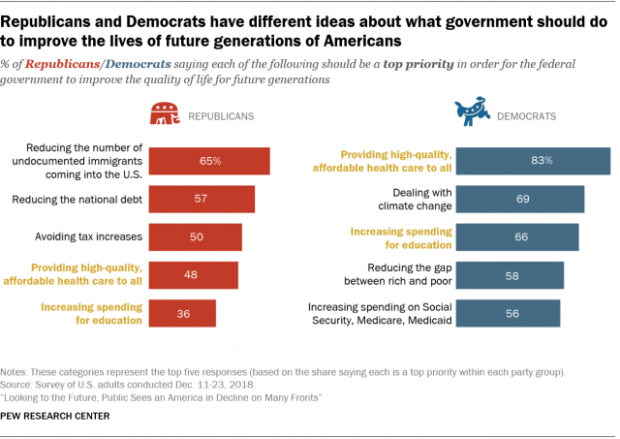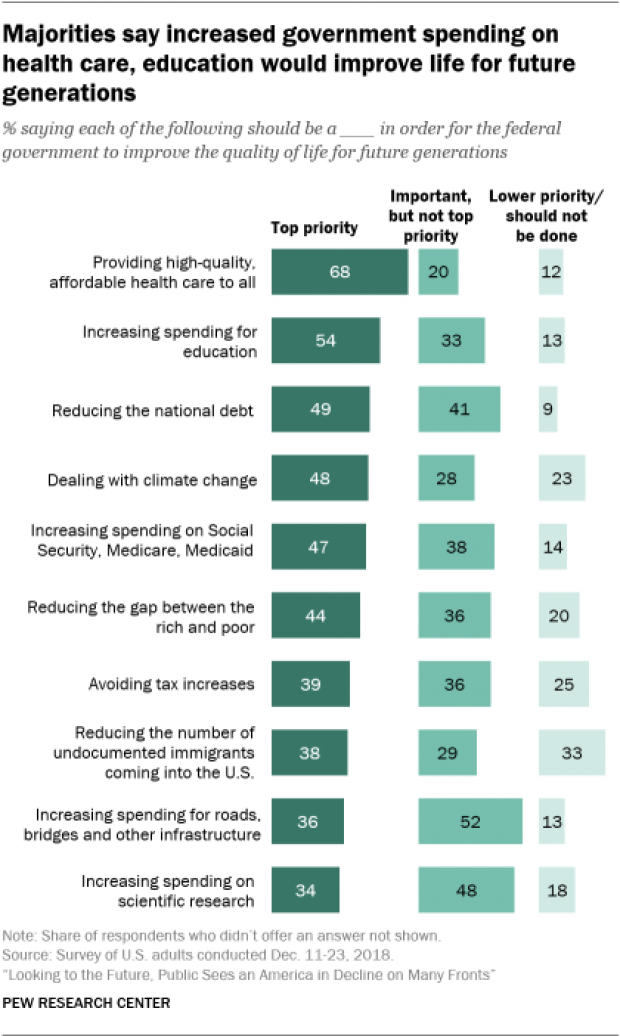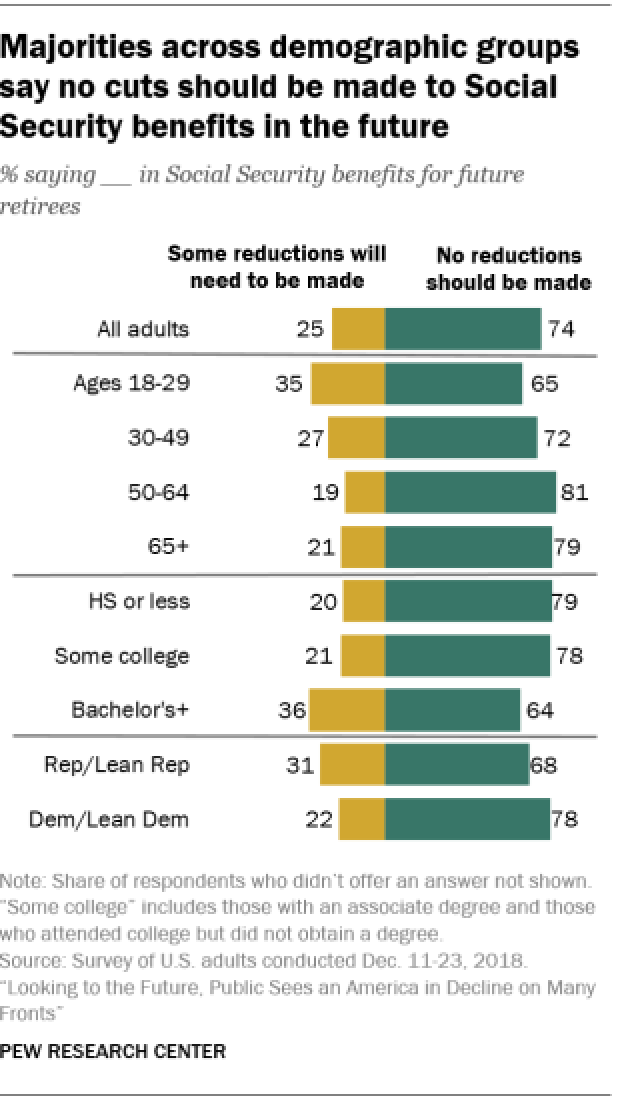A Pew Research Center report published Thursday shows how staggeringly pessimistic Americans are about where the country is heading. “When Americans peer 30 years into the future, they see a country in decline economically, politically and on the world stage,” the report says.
While 56 percent of Americans say they are somewhat or very optimistic about the U.S. over the next 30 years, the public is decidedly gloomier when asked about specific issues. Majorities of Americans predict that, by 2050, the economy will be weaker, standards of living will be lower, health care will be less affordable, the national debt will be larger and the condition of the environment will be worse. And a large majority sees a broken political system largely incapable of facing those challenges.
The full 58-page report is worth a look, but here a few charts that stand out.
Partisan differences on what government should do: “Among all adults, health care and increased spending on education topped the list of policies that the public believes the federal government should enact to improve the quality of life for future generations,” the Pew report says. “Yet the top-three Republican priorities – reducing the number of undocumented immigrants, cutting the national debt and avoiding tax increases – don’t even appear among the Democrats’ highest five priorities.” And three of the top five Democratic priorities aren’t on the GOP list.
Health care, education and national debt are top priorities: More than two-thirds of Americans say that providing high-quality, affordable health care for all should be a top priority for the government, while slightly more than half say that increased spending on education should be a primary emphasis.
Skepticism about the future of Social Security: Most Americans say that, in 30 years, seniors will be less prepared for retirement than the current generation. Most Americans — 74 percent — don’t want Social Security benefits to be cut in any way, and just 25 percent say that some reductions will have to be made (see chart below). But among those now in the workforce, 42 percent expect that Social Security won’t provide any benefits once they retire, while another 42 percent expect reduced benefits. Almost half of Americans (48 percent) younger than 50 expect to receive no Social Security benefits when they retire.








